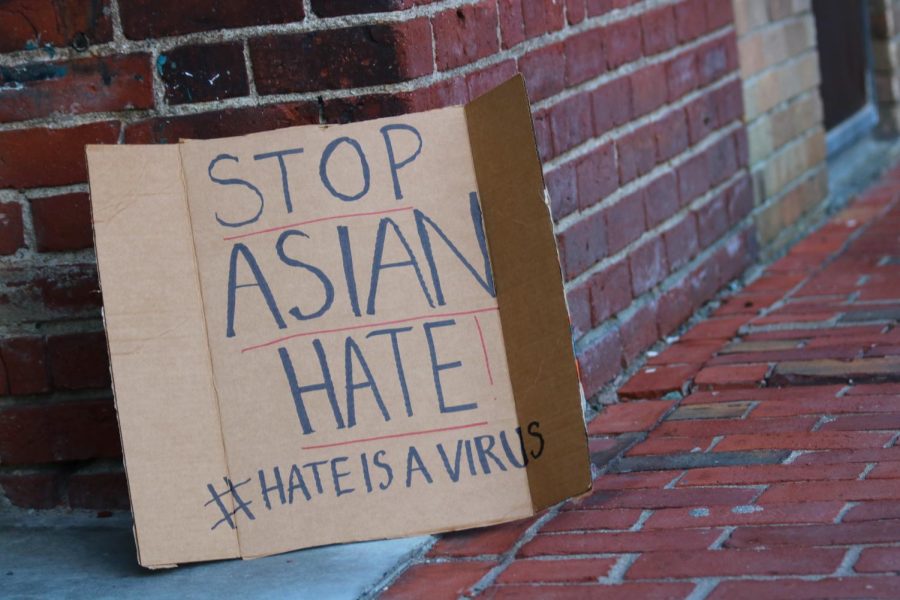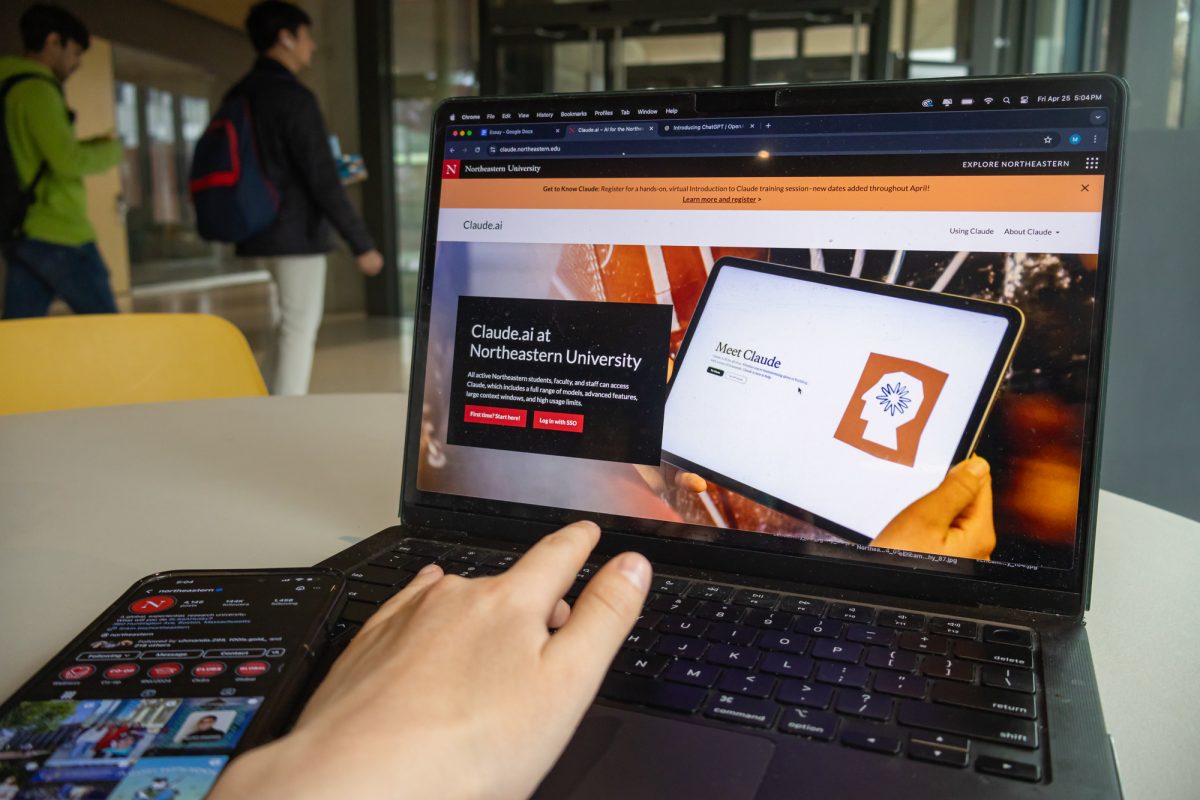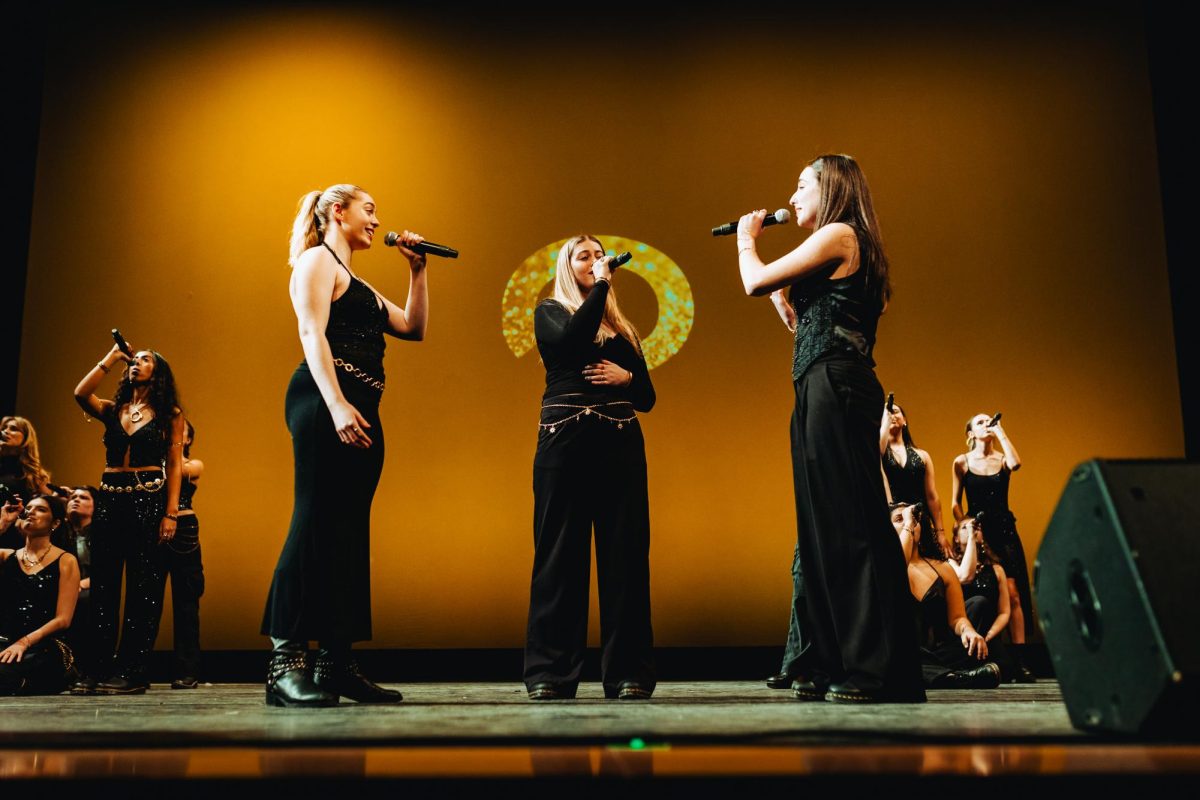Column: Addressing anti-Asian hate: We can all do better.
Protests erupt in major cities in response to anti-Asian racism.
March 31, 2021
It’s been two weeks since the killings of six Asian women in Atlanta. While there has been a push to address and end the violence, especially from organizations that exist to combat anti-Asian hate, it seems as though the response from the general public is lacking.
Northeastern’s response to the anti-Asian hate crimes was empty at best, claiming to be a community that takes action without giving any actual action steps. In the words of President Aoun himself, “Northeastern is a community of action.” Sending a survey to gather students’ views on diversity is one step in the right direction, but it’s hardly enough to address the issue of violence against Asian Americans.
The Asian American community released a letter this past week to address Northeastern’s lack of action and to discuss the treatment of Asian Americans. It was disheartening to see the university’s inaction, but it was amazing to see the letter and to know that the administration is addressing it. The thing is, discrimination against Asian Americans is clearly not a new issue, and we could all have done more to prevent it from going this far.
There have been upwards of 3,800 reported anti-Asian hate crimes since the pandemic began. Here’s a fabulous video from Trevor Noah on how we could have predicted and prevented the shootings. Noah explains that America has a history of being reactionary toward racism, so if we’re really going to learn anything, we have to start being proactive.
As such, the question we should be asking ourselves is: How many preventable, unjust murders must occur for people to take racism seriously?
Last summer, I had mixed feelings about people proclaiming their support for Black Lives Matter on social media. It turned into a trend, and I was worried at first that it would go away just like it had every other time a Black person was killed by a cop. As time went on, people kept talking about it, and it actually lasted long enough to get lawmakers to start making a change, especially with new police reform bills passing in several states.
But this is just a start, and we can’t stop now. Once the trend died down, fewer people have been talking about or protesting for Black Lives Matter, and we need to pick up on that again in order for the broad changes that we need to actually happen.
This time around, there have been mixed responses to the Atlanta shootings on social media depending on the person’s social circle. It seems that, compared to the mass outrage after the murder of George Floyd, the people who are talking about last week’s shooting are the usual suspects: people who have always fought for social justice, people who directly experience this kind of hate and people who are part of organizations that exist to combat racism.
While these voices are essential, they’re not always enough. We need conversations about race and ending hate to penetrate every single corner of society. We need everyone to participate in these conversations, online and in person. A friend of mine pointed out that one of the reasons why there was such outrage when George Floyd was murdered was because there was a clear enemy to protest; now, as with most forms of discrimination, the enemy lurks within the general public. Our greatest influences are our family and friends, so if you’re trying to change the general public, start by talking to those who are closest to you and have conversations about their attitudes toward Asian Americans.
As for the government’s response, it seems to be going in the right direction, but we must take action and keep the conversation going so that this doesn’t happen again. At Northeastern, there are dozens of clubs and organizations you can join to support social justice causes, and there are new ones popping up all the time. You can post on social media if you use it, donate money or time to an outside organization or even commit to addressing hate when you see it — even if it’s from someone you know and/or love.
As Aoun said, “We must be a model of what society can be” — that goes for both students and the administration. We can all do more to continue fighting hate, not only against Asians but against all races, genders and other marginalized groups, to ensure that crimes like these are no longer normalized.
Mia Merchant is a first-year in the Explore Program. She can be reached at merchant.mia@northeastern.edu.







